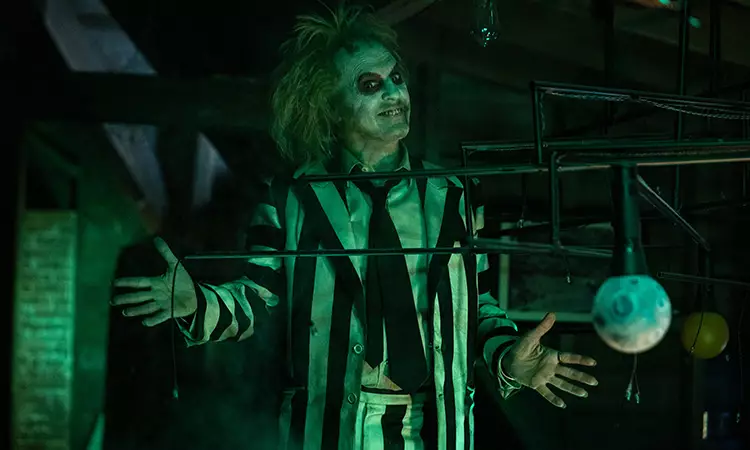In the quirky and darkly whimsical universe of *Beetlejuice*, once dominated by the eccentric Lydia Deetz, the character has evolved into an anxiety-riddled woman grappling with life’s absurdities. Now portrayed as a seasoned widow, Lydia is not merely a reflection of her goth past but a complex individual balancing her career with parental challenges. Her morbid fascination, rooted in her youth, has transformed into a full-blown career as a host of a paranormal TV show, showcasing her unique blend of gothic charm and contemporary media savvy. Her journey encapsulates the struggles of maintaining a semblance of normalcy while navigating the undercurrents of grief, particularly after the recent loss of her father.
The dynamic between Lydia and her teenage daughter, Astrid, played by Jenna Ortega, intricately explores themes of family and generational conflict wrapped in layers of humor and heartfelt moments. The layers of their relationship present a refreshing twist on the mother-daughter trope, revealing how grief and personal history can create both distance and connection. Astrid’s birth during the screening of the eerie film *Kill, Baby…Kill!* symbolizes the intertwining of the macabre and motherhood, reinforcing the film’s continuing exploration of love within a setting rife with gothic imagery. Their journey back to New England with Lydia’s stepmother, Delia, adds another layer of richness, as the three women confront emotional and literal ghosts from their pasts.
Tim Burton’s direction marries the bizarre with moments of classic familial warmth, evoking a nostalgic yet fresh atmosphere. His distinctive visual style is not only a spectacle for the eyes but also an integral part of storytelling; the chaos of the plot, while at times overwhelming, is counterbalanced by his trademark humor. This film embraces the chaos and presents it through inventive sequences that fuse the supernatural with the absurdity of everyday life. Burton manages to infuse an almost theatrical energy into his scenes – a captivating mixture of fright and fun, all while paying homage to classic horror aesthetics that have shaped our understanding of the genre.
The performances of the ensemble cast elevate the narrative, particularly the rapport among Lydia, Delia, and Astrid. Catherine O’Hara’s portrayal of Delia channels an eccentric performance artist, adding a layer of absurdity that enriches the storyline. Winona Ryder’s return as Lydia perfectly captures the character’s quirks, enhancing her portrayal with nuanced layers that speak to both nostalgia and growth. Jenna Ortega, as the perfect counterbalance, delivers her lines with a deadpan wit that punctuates the film’s humor. This triumvirate not only entertains but showcases a refreshing take on female relationships within a fantastical realm.
Ultimately, *Beetlejuice* dives into the heart of familial bonds amidst chaos, serving a delightful mixture of melodramatic musical numbers interspersed with homages to classic horror. There’s a delectable sweetness that emerges from the twisted narrative—a reminder that love can thrive even in the most unconventional settings. The film’s embrace of dark humor, coupled with visual and narrative innovation, redefines what we expect from a sequel. As the characters face their demons—both personal and supernatural—the spectacle leaves a lasting impression, igniting a sense of nostalgia while inviting new perspectives on the enduring legacy of morbid love.

